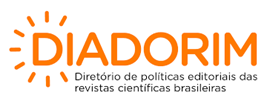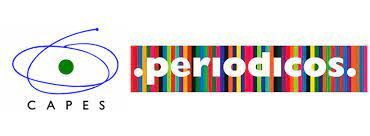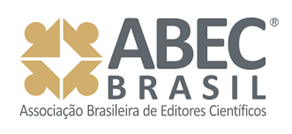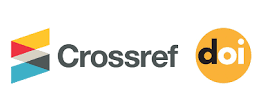A CLASS EPISODE ON THE NATURAL SCIENCES TRACK: IDENTIFYING EPISTEMIC PRACTICES AND ARGUMENTATIVE QUALITY IN THE MOOCK JURY METHODOLOGY
DOI:
https://doi.org/10.22407/2176-1477/2024.v15.2426Keywords:
Discursive interactions, Argumentation, Science teaching, Scientific knowledge, ChemistryAbstract
The objective of this study was to identify and evaluate which epistemic practices emerge in discursive interactions and relate them to the argumentative profile in a class episode of a natural science track, through speeches produced by 2nd grade high school students. The present research is characterized by a qualitative bias, which occurs from discourse analysis, the techniques and instruments for constituting the data were composed from the speeches of students and the teacher, recorded, in an episode in the classroom . The data analysis technique was a content analysis of the statements, which aimed to categorize them according to the reference, in order to investigate the occurrence of epistemic practices, we made use of the analytical tools proposed by Licona and Kelly (2020) and Mendonça and Vargas (2022) and the argumentative profile of Erduran students; Simon; Osborne (2004). In the results, we verified that the epistemic practices that prevail are those related to elaborating a question, constructing arguments based on one's experiences and problematizing. Regarding the quality of arguments, we found that students generally construct arguments at low levels. We conclude that there is a need to think about strategies and provoke teaching intentionality, which when constructed leads students to carry out the most varied epistemic practices when discussing science, as well as increasing their argumentative level.
References
ARAÚJO, Letícia de Cássia Rodrigues; MENDONÇA, Paula Cristina Cardoso. Relações entre movimentos epistêmicos e práticas epistêmicas na sala de aula de ciências: análise do episódio de uma aula sobre fotossíntese. ACTIO: Docência em Ciências, v. 7, n. 1, p. 1-20, 2022. Disponível em: https://revistas.utfpr.edu.br/actio/article/view/13474. Acesso em: 10 ago. 2022
CLARK, Douglas. B.; SAMPSON, V., WEINBERGER, A., & ERKENS, G. Quadros analíticos para avaliar a argumentação dialógica em ambientes de aprendizagem online. Revisão de Psicologia Educacional, v. 19, p. 343-374, 2007.
DAWSON, V. M.; VENVILLE, G. Teaching strategies for developing students’ argumentation skills about socioscientific issues in high school genetics. Research in Science Education, v. 40, n.2, p. 133-148, 2010.
ERDURAN, Sibel.; SIMON, Shirley.; OSBORNE, Jonathan. TAPping into argumentation: developments in the application of Toulmin’s argument pattern for studying science discourse. Science Education, v. 88, n. 6, p. 915-933, 2004.
GARCIA-MILA, Merce; ANDERSEN, Christopher. Cognitive foundations of learning argumentation. In: Argumentation in science education: Perspectives from classroom-based research. Dordrecht: Springer Netherlands, 2007. p. 29-45.
JIMÉNEZ-ALEIXANDRE, Maria. P.; BROCOS, P. Desafios metodológicos na pesquisa da argumentação em ensino de ciências. Ensaio Pesquisa em Educação em Ciências, v. 17, n. especial, p. 139-159, 2015.
JIMÉNEZ-ALEIXANDRE, M. P.; ERDURAN, Sibel. Argumentation in science education: an overview. In: ERDURAN, S.; JIMENEZ-ALEIXANDRE, M. P. (Ed.). Argumentation in science education. 1ª. Ed. Dordrecht, The Netherlands: Springer, 2007. p. 3–27.
KELLY, Gregory J. Discourse practices in science learning and teaching. Handbook of research on science education, v. 2, p. 321-336, 2014.
KELLY, Gregory. J. Inquiry, activity and epistemic practice. In R. A. G. DUSCHL, R. E. (Ed.), Teaching Scientific Inquiry: recommendations for research and implementation (pp. 99-117). Rotterdam, The Netherlands: Sense Publishers. 2008.
KELLY, Gregory. J.; LICONA, Peter. Epistemic Practices and Science Education. In M. R. O. MATTHEWS (Ed.), History, Philosophy and Science Teaching. (pp. 139-165). New York, United States of America: Springer. 2018.
KUHN, Diana. Teaching and learning science as an argument. Science Education, v. 94, n. 5, p.810-824, 2010.
KUHN, Diana. The skills of argument. Cambridge, UK: Cambridge University Press. 1991.
LICONA, Peter R.; KELLY, Gregory J. Translinguagem em uma sala de aula de ciências do ensino médio: Construindo argumentos científicos em inglês e espanhol. Estudos Culturais da Educação em Ciências, v. 15, p. 485-510, 2020.
MAGALHÃES JÚNIOR, Carlos Alberto de Oliveira; BATISTA, Michel Corci. Metodologia da Pesquisa em Educação e Ensino de Ciências. Gráfica e Editora Massoni, 1. ed. Maringá, PR, 2021.
MENDONÇA, Paula Cristina Cardoso; VARGAS, Isabela Breder. Práticas epistêmicas e abordagem QSC com o foco no ensino explícito de ética e moral. Investigações em Ensino de Ciências, v. 27, n. 2, p. 294-311, 2022. https://doi.org/10.22600/1518-8795.ienci2022v27n2p294. Acesso em: 3 dez. 2022.
MOHAN, Ashwin; KELLY, Gregory J. Nature of Science and Nature of Scientists Implications for University Education in the Natural Sciences. Science & Education (2020) 29:1097–1116. https://doi.org/10.1007/s11191-020-00158-y
MORTIMER, Eduardo. F., MASSICAME, T.; TIBERGHIEN, A., BUTY, C. Uma metodologia para caracterizar os gêneros de discurso como tipos de estratégias enunciativas nas aulas de ciências. IN NARDI, R. (org.) A pesquisa em ensino de ciências no Brasil: alguns recortes. São Paulo, Escrituras. 2007, p-53-94.
MOTTA, Ana Elisa Montebelli; MEDEIROS, Michele Dayane Facioli; MOTOKANE, Marcelo Tadeu. Práticas e movimentos epistêmicos na análise dos resultados de uma atividade prática experimental investigativa. Alexandria: Revista de Educação em Ciência e Tecnologia, v. 11, n. 2, p. 337-359, 2018. Disponível em: https://dialnet.unirioja.es/servlet/articulo?codigo=6812486. Acesso em: 11 ago. 2022.
OSBORNE, J.; ERDURAN, S.; SIMON, S.; MONK, M.Enhancing the quality of argumentation in school science. Journal of Research in Science Teaching, v. 41, n. 10, p. 994-1020, 2004.
REX, L. A.; THOMAS, E. E.; ENGEL, S. Applying Toulmin: teaching logical reasoning and argumentative writing. English Journal, v. 99, n. 6, p. 56–62, 2010.
SASSERON, Lúcia Helena. Alfabetização científica, ensino por investigação e argumentação: relações entre ciências da natureza e escola. Ensaio Pesquisa em Educação em Ciências, v. 17, n. especial, p. 49-67, 2015
SASSERON, Lúcia Helena. Práticas constituintes de investigação planejada por estudantes em aula de ciências: análise de uma situação. Ensaio Pesquisa em Educação em Ciências (Belo Horizonte), v. 23, 2021.
SILVA, Adjane da Costa Tourinho. Estratégias enunciativas em salas de aula de química: contrastando professores de estilos diferentes. 2008. 477 f. Tese (Doutorado em Educação), Universidade Federal de Minas Gerais, Belo Horizonte, 2008. Disponível em: https://ri.ufs.br/handle/riufs/684 acesso 03 nov. 2023.
SILVA, Adjane da Costa Tourinho. Interações discursivas e práticas epistêmicas em salas de aula de ciências. Ensaio Pesquisa em Educação em Ciências, v. 17, n. spe, p. 69-96, 2015. https://doi.org/10.1590/1983-2117201517s05
SILVA, Maíra Batistoni e, GEROLIN, Eloísa Cristina TRIVELATO, Sílvia L. Frateschi. A Importância da Autonomia dos Estudantes para a Ocorrência de Práticas Epistêmicas no Ensino por Investigação. Revista Brasileira De Pesquisa Em Educação Em Ciências, 18(3), 905–933. 2018. https://doi.org/10.28976/1984-2686rbpec2018183905
SILVA, Rosianne Pereira; BERTOLDO, Tássia Alexandre Teixeira; WARTHA, Edson José. Padrões discursivos em rodas de conversa como estratégia de ensino. Amazônia: Revista de Educação em Ciências e Matemáticas, v. 17, n. 39, p. 108-128, 2021. http://dx.doi.org/10.18542/amazrecm.v17i39.10693
SIMON, S., ERDURAN, S., & OSBORNE, J. Learning to Teach Argumentation: Research and development in the science classroom. International Journal of Science Education, 28, p. 235-260. 2006.
TOULMIN, Sthepen. Os usos do argumento. São Paulo: Martins Fontes, 2006.
VAN EEMEREN, F. H.; GROOTENDORST, R. A systematic theory of argumentation: the pragmadialectical approach. New York: Cambridge UniversityPress, 2004.
WALTON, Douglas. N. Informal logic: a handbook for critical argumentation. Cambridge: Cambridge University Press, 1989.
Downloads
Published
How to Cite
Issue
Section
License
Copyright (c) 2024 Mayara Taveres de Almeida, Daniela Santos de Jesus, Edson José Wartha

This work is licensed under a Creative Commons Attribution-NonCommercial 4.0 International License.
O autor responsável pela submissão representa todos os autores do artigo, e se compromete a enviar como documento suplementar uma carta de consentimento com a assinatura de todos os autores informando que tem a permissão para a submissão do texto assim como assegura que não há violação de direitos autorais e nem qualquer tipo de plágio (incluindo autoplágio).









